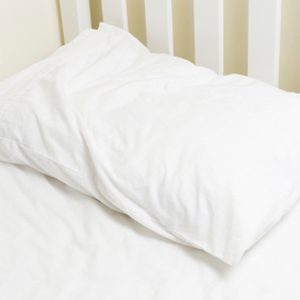
You’re trying to get a good night’s sleep. You pour your last cup of coffee for the day approximately five minutes after you get up in the morning, and your bedtime routine is so calming, it could put a wired four-year-old into a coma. You banish worries by writing them down in a special notebook you keep by the bed, right next to your warm milk and drug-free, homeopathic, fragrance-based sleep aids. So why do you still find yourself staring at the ceiling?
It’s time to listen to what some unexpected experts have to say. Their jobs don’t necessarily include long hours in a laboratory studying sleep problems, but what they know about a multitude of other irritants-stomach ills and back pain and windows in need of shades-just might put you out for the night.

1. Rethink Your Mattress
“You don’t need a really expensive mattress or one with a lot of space-age bells and whistles. There’s really only one good study on mattresses, and it confirmed the Goldilocks theory: Most people prefer a mattress that’s not too hard and not too soft. So look for something medium firm.”
– Andrew Hecht, MD, orthopedic surgeon and co-chief of spine surgery at Mount Sinai Medical Center, New York, New York
“If you can, try the type of mattress you’re considering in a hotel or at a friend’s house. Some stores may even let you sleep on it for a night. Some mattress companies will also give you a full refund if you don’t like it after a month.” – Maxwell Gillingham-Ryan, cofounder of the Apartment Therapy website

2. Stick to a Single Pillow
“I’m not a fan of sleeping with two pillows if you’re back sleeper because it makes your upper back curve and strains the neck and back. If you need to sleep up high for medical reasons, get a wedge and put your pillow on it.” – Karen Erickson, a chiropractor in New York, New York

3. Nod Off With the Right Scent
“My research has found that any new smell, even one associated with relaxation, like lavender, can make you feel more alert and vigilant. You’re better off with a scent that makes you feel safe and comfortable. There really is something to cuddling up with your spouse’s undershirt.” – Pamela Dalton, PhD, odor-perception expert and sensory psychologist at Monell Chemical Senses Center, Philadelphia, Pennsylvania

4. Don’t Harp on Your Hours of Sleep
“We expect to sleep for eight solid hours, but that’s actually not normal compared with global populations and our own evolutionary history. People naturally wake up two or three times a night. It’s worrying about it that’s the problem.” – Carol Worthman, PhD, an anthropologist at Emory University in Atlanta, Georgia

5. Make Sleeping Pets Lie
“You may not need a white noise machine, but your dog might. A lot of dogs are very sensitive to noises outside, like other dogs barking or neighbours coming home late. A white noise machine or fan will drown out the noises that are keeping your pet up, which will keep your pet from waking you.” – Tracey Schowalter, pet-training consultant at Puppy Adept in Gainesville, Georgia
“Dogs sleep when they’re bored. If you keep them awake during the day, they’re more likely to sleep at night.” – Kathy Diamond Davis, author and dog handler in Oklahoma City, Oklahoma

6. Avoid Tummy Trouble
“If you’re not sleeping well, you may have acid reflux, even if you don’t feel heartburn. Try elevating your head by putting blocks under the top of the bed and sleeping on your left side. Or you can take a dose of Gaviscon [an over-the-counter remedy that creates a protective barrier against stomach acid].” – Patricia Raymond, MD, a gastroenterologist in Virginia Beach, Virginia

7. Take a Slumber-Triggering Supplement
“Low magnesium is associated with irritability and jumpiness. It’s also known to cause chronic inflammatory stress, and insomniacs often have chronic inflammatory stress. So it’s possible that taking a magnesium supplement-100 to 200 milligrams a day-will help with sleep.” – Forrest Nielsen, PhD, research nutritionist at the USDA Grand Forks Human Nutrition Research Center, Grand Forks, North Dakota